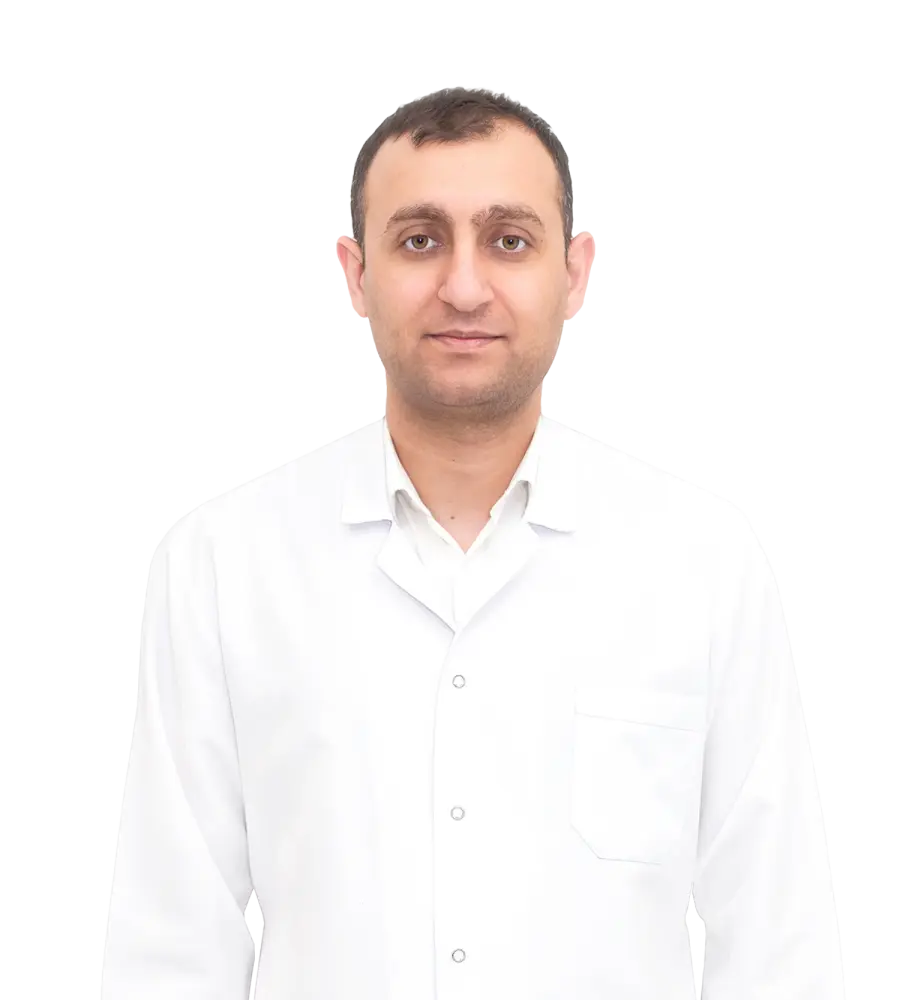Surgical treatment of cystitis in Kharkiv
Cystitis (inflammation of bladder mucosa) is most often caused by a bacterial infection. The disease occurs mainly in women since their urethra is located close to the anus, from where bacteria can enter it. Due to the short length of the urethra (only 3-5 cm), bacteria quickly reach the bladder, causing inflammation of its mucous membrane and urinary disorder.
Cystitis can be as follows:
- primary (emerging as an independent disease);
- secondary (when its development is caused by another pathology). Cystitis is often a complication of untreated urethritis (inflammation of urethra). Bacteria from the urethra enter the bladder and provoke the development of pathology.
By the stage of the disease, cystitis can be:
- acute (lasts no more than two weeks, the symptoms of pathology are pronounced). With timely treatment of acute cystitis, improvement occurs within 3-4 days;
- chronic (develops in the absence of adequate treatment for an acute inflammatory process). Chronic cystitis is characterized by mild symptoms and a tendency to recurrent exacerbations.
Causes of cystitis development
The main cause of the cystitis development is the penetration of fungi and bacteria into the bladder (infectious cystitis). The disease in most cases is provoked by E. coli. It is part of the intestinal microflora, but when it finds itself in the bladder, it provokes inflammation of its walls. Other causative agents of cystitis are staphylococci, streptococci, chlamydia, candida fungi and mycoplasma.
Non-infectious cystitis occurs after taking medications, radiation therapy to the pelvic organs, and long-term use of urinary catheter. In some people, bladder inflammation is triggered by allergic reaction to certain ingredients in soap, shower gel, and other hygiene products.
The main causes of the cystitis development in women include:
- insufficient hygiene of the external genital organs, use of substandard hygiene products;
- hormonal changes (pregnancy, menopause);
- hypothermia;
- gynecological diseases and sexually transmitted infections (STIs);
- diabetes mellitus;
- presence of a chronic infection in the body;
- weakened immunity;
- frequent stress;
- stagnation of urine due to prolonged containment of the urination process.
In men, cystitis develops mainly against the background of inflammatory diseases of the pelvic organs:
- urethritis;
- prostatitis;
- vesiculitis, etc.
Signs and symptoms of cystitis
Specific symptoms of cystitis in women and men include:
- strong and frequent urge to use the toilet;
- feeling of incomplete emptying of the bladder;
- cramps and burning when urinating;
- urinary incontinence;
- pain in the bladder;
- cloudy urine, blood or pus in it, change in odor;
- pain in the lumbosacral region.
The nonspecific symptoms of cystitis include increase in body temperature above 38°C, general weakness, chills, and loss of appetite. They indicate that infection from the bladder has spread to the kidneys and caused inflammation (pyelonephritis), so there is a need to see a urologist urgently. Treatment of cystitis with folk remedies at home is unacceptable, since it only suppresses the symptoms of the disease and does not eliminate the cause of its occurrence. The lack of adequate drug therapy provokes the transition of cystitis to a chronic form, which is difficult to cure.
Treatment of cystitis with cystourethroscopy
Treatment of cystitis begins with a consultation by urologist and comprehensive diagnostics, including:
- general test of urine, blood;
- bacteriological culture of urine;
- ultrasound of kidneys and bladder;
- cystoscopy of the urinary bladder - a visual examination of the organ walls using a special thin probe equipped with a miniature video camera and a light source. The probe is inserted into the bladder directly through the urethra. Bladder cystoscopy in men can also assess the condition of the prostate.
Drug treatment of cystitis is aimed at destroying the pathogenic microflora that caused the inflammation. For this purpose, the patient is prescribed a course of antimicrobial therapy after determining the type of microorganism and its sensitivity to antibiotics.
For the treatment of cystitis, a cystourethroscopy procedure is also used, during which the urological surgeon irrigates the bladder and urethra, and also injects drugs into them for faster healing of the mucous membrane. If ulcers are found on the mucous membrane of the bladder, they are cauterized with electrocoagulator – an apparatus generating a high-frequency electric current. After a while, the affected tissue is replaced by healthy one.
Cystourethroscopy of bladder in women and men is performed under local anesthesia or intravenous sedation. The patient shall not eat or drink two hours before the procedure. The patient can return to his/her daily activities 1-2 hours after the urethrocystoscopy.
You can make appointment for a consultation by urologist regarding the surgical treatment of cystitis in Kharkiv at the medical center “ON Clinic Kharkiv”. Leave a request on the site at any time convenient for you or call the specified phone number.
| Название | Цена |
| 6000 uah | |
| 8500 uah | |
| 5000 uah | |
| 600 uah | |
| 850 uah | |
| 5500 uah | |
| 4500 uah | |
| 280 uah | |
| 2075 uah | |
| Consultation of an oncogynecologist | 700 uah |
| Consultation with a surgeon | 600 uah |
| Consultation with a surgeon-endocrinologist | 525 uah |
| Consultation with an oncosurgeon | 600 uah |
| Consultation with an operating obstetrician-gynecologist | 500 uah |
| Consultation with an operating surgeon | 500 uah |
| Consultation with an operating urologist | 550 uah |
| Endocrinology surgeon consultation | 600 uah |
| Home call to a surgeon | 1800 uah |
| ONLINE Consultation with a gynecological oncologist | 700 uah |
| ONLINE Consultation with a surgeon | 600 uah |
| ONLINE Consultation with an oncosurgeon | 600 uah |
| ONLINE Consultation with an surgeon-endocrinologist | 525 uah |
| ONLINE Thoracic Surgeon Consultation | 600 uah |
| Thoracic surgeon consultation | 500 uah |
















